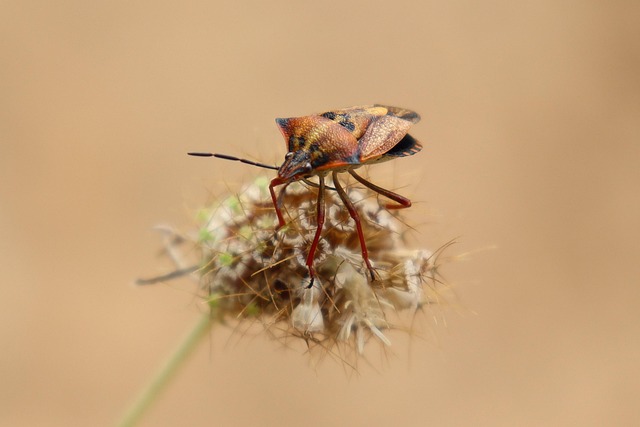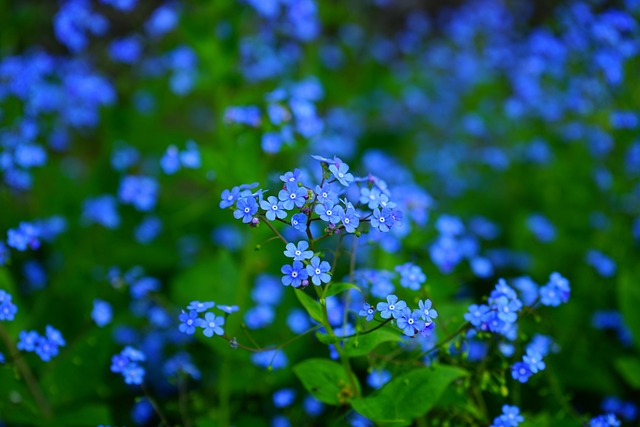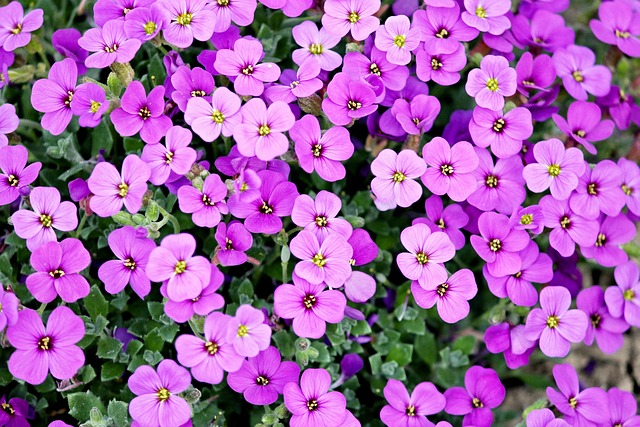Seasonal garden maintenance is crucial for maintaining plant health and soil vitality year-round. In the fall, focus on cleanup, pruning, and adjusted fertilizing schedules to prepare for winter. Spring involves planting, balanced fertilization, and targeted pest control to promote robust growth. Summer requires efficient watering techniques to encourage deep roots while minimizing waste. Year-round mulching offers insulation, moisture retention, and seasonal pest protection. By implementing these strategic practices, gardeners can ensure their gardens thrive during every season, from spring preparation to winter protection.
As winter approaches, understanding how to safeguard your plants and soil is crucial for a thriving spring. This article guides you through the essential aspects of seasonal garden maintenance, from preparing for the cold months to implementing effective fall cleanup strategies. Discover expert tips on protecting your garden during winter, including pruning seasonal plants and mulching for optimal health. Learn about fertilizing schedules by season and seasonal pest control methods to ensure a vibrant and robust garden come springtime.
- Understanding Winter's Impact on Plants and Soil
- Seasonal Garden Maintenance: Preparing for Winter
- Protecting Your Garden During the Cold Months
- Fertilizing and Pest Control: Keeping Your Garden Healthy Throughout the Season Changes
Understanding Winter's Impact on Plants and Soil

Winter can be a challenging time for plants and soil, as extreme temperatures, frost, and reduced sunlight can take a toll on your garden. Understanding how these seasonal changes affect your garden is crucial for effective maintenance and preparing your plants for spring. During winter, many plants enter a dormant phase, which means their growth slows down significantly. However, this is also a time when proper care can make a big difference in ensuring their survival and promoting healthy growth once spring arrives.
Seasonal garden maintenance plays a vital role in protecting both plants and soil health. Tasks such as pruning seasonal plants help remove damaged or diseased parts, encouraging new growth in the upcoming season. Fertilizing schedules should be adjusted according to the changing seasons; for instance, fall is often an ideal time to apply fertilizers to feed plants before winter sets in. Mulching is another essential strategy for winter garden protection, providing insulation and preserving moisture in the soil, which helps prevent heaving due to freezing and thawing cycles. Additionally, implementing effective pest control methods tailored to seasonal pests can protect your plants from unwanted invaders during this period.
Seasonal Garden Maintenance: Preparing for Winter

As the seasons shift, a well-planned seasonal garden maintenance routine is essential to ensure your plants and soil thrive throughout the year. In preparation for winter, gardeners should focus on several key strategies. First, fall cleanup strategies are vital; removing dead plant matter helps prevent pest issues and disease spread. Additionally, pruning seasonal plants encourages new growth in spring while maintaining a healthy structure during winter months.
Spring garden preparation begins with assessing what needs replacing or adding to your landscape. Fertilizing schedules by season should be considered, focusing on nutrient-rich soil for robust plant development. During summer, watering tips become crucial; deep and infrequent watering encourages root growth and reduces water waste. Similarly, mulching is an effective technique for seasonal changes, insulating plants from extreme cold and retaining moisture during winter. Implementing these practices ensures your garden enters winter in optimal condition, ready to flourish as spring arrives.
Protecting Your Garden During the Cold Months

As the cold months approach, preparing your garden for winter is essential to ensure its health and vitality come spring. Seasonal garden maintenance plays a crucial role in protecting your plants from harsh weather conditions. One of the primary steps is fall cleanup strategies, which involve removing dead plant matter and debris to prevent pest issues and disease spread. Pruning seasonal plants is also vital; trim back perennials and shrubs to maintain their shape and encourage new growth.
Additionally, fertilizing schedules by season should be considered. Applying fertilizers in late summer or early fall prepares the soil for winter and supports robust plant development in spring. Mulching is another effective technique for winter garden protection. Adding a layer of organic mulch around plants insulates them from extreme temperatures, conserves moisture, and suppresses weeds, ensuring your garden remains healthy throughout the colder months. These practices, combined with suitable watering tips for summer and strategic pest control measures, will help maintain a thriving garden come spring.
Fertilizing and Pest Control: Keeping Your Garden Healthy Throughout the Season Changes

Maintaining a healthy garden throughout the year requires adapting your care practices to each season. During winter, while the garden may seem dormant, it’s crucial to implement strategies for protecting plants and soil to ensure a vibrant spring and summer. One key aspect is fertilizing at the appropriate times. In early spring, before new growth begins, apply a balanced fertilizer to provide essential nutrients. This promotes robust plant development. Adjust your fertilizing schedule during summer, focusing on lighter, more frequent feedings to support continuous growth without burning the plants or stressing the soil.
Pest control is another vital component of seasonal garden maintenance. In fall, inspect your plants for signs of pest infestation and treat accordingly. Winter offers a chance to prevent future issues by mulching around trees and shrubs, creating a protective barrier that regulates temperature and moisture while also repelling pests. When spring arrives, continue monitoring for pests and employ organic or chemical control methods as needed. Following these seasonal practices ensures your garden thrives during every phase of the year.
As we transition into winter, it’s essential to reflect on the year’s growth and protect our gardens for the ahead. By implementing strategic seasonal garden maintenance, from fall cleanup strategies to winter garden protection, we can ensure a thriving spring garden preparation. Remember, proper pruning of seasonal plants, mulching for seasonal changes, and adhering to fertilizing schedules by season are key. Additionally, integrating sustainable pest control methods will keep your garden healthy throughout the year, minimizing damage during the colder months. With these practices in place, you’ll be well-equipped to embrace the next growing season with a vibrant and robust outdoor space.
